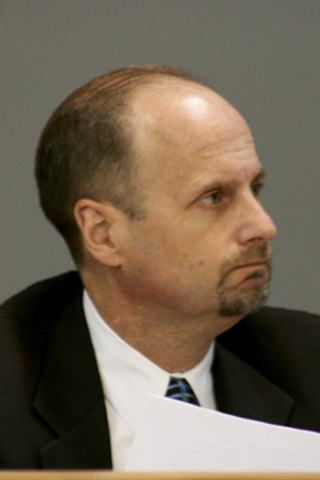City leaders talk about form of government transitions.
Of the four cities in Kitsap County, only Bainbridge Island has a city administrator position.
If voters decide to change the island’s form of government in May, current city administrator Mark Dombroski would step in as the acting city manager and would be responsible for the daily affairs of the city.
It is a task he already has a handle on.
“For the most part, the mayor allows me to run the day-to-day operations,” Dombroski said. “It’s still her responsibility and right to guide me in making those operating decisions.”
Council members would have six months to renegotiate Dombroski’s contract and decide whether to keep him on as the new city manager or hire a manager on either an interim or full-time basis.
But the switch between mayor and manager is not always easy, notes Port Townsend City Manager David Timmons.
Timmons has helped three cities transition between the mayor-council and council-manager forms of government and has been a manager in municipal government transition he has been a part of is Port Townsend’s switch to council-manager in 1998.
“Where it becomes a situation is when you are breaking old habits,” Timmons said. “That is one of the hardest things to deal with.”
When he arrived, Timmons claimed there was a “complete perception of dysfunction of the city government.” It took a reorganization of command structure and a reevaluation of roles to bring the city back online.
He feels that the ability for the city to hire a professional manager aided in that restructuring.
“Speaking as a city manager, your odds of finding the right person to run the day-to-day affairs of the city are better than the prospects you have in an election,” Timmons said.
Under the council-manager form of government, the council could hire or fire the city administrator based on performance. While this can streamline efficiency and maintain continuity, turnover is comparable to the average term of a mayor in Washington.
According to the Washington City/County Management Association, the average tenure of a city manager is between five and seven years.
For city managers, it is the ability to rise above politics in performing the job that is the most promising aspect of council-manager government.
“Of course, there are politics in everything we do,” Dombroski said. “The idea of a city manager is to have a professional in municipal management. A mayor may not get elected for their management. They might have visions for the community, or they are activists.”
And that bodes well for some cities, such as Washington’s Ocean Shores.
The small, coastal community changed from a council-manager form of government to a mayor-council form in 2007 after two unsuccessful attempts at a change in 2003 and 2004.
A major issue on which the final Ocean Shores election hinged was a 120-acre piece of wetland that was being considered by the city council for development.
“A large group didn’t want that to happen,” said Ocean Shores Mayor Dean Bunkers. “And that is pretty typical – you are always going to have some issues driving (a change in form of government).”
Bunkers believes the separation of powers helped lead to the establishment of a wetland mitigation on the property, and that move highlighted the importance of having a government of separated powers that are both held accountable to citizens.
But, he said, ultimately voters will make their decisions based on how the issue is presented.
“What I have learned is the best thing is education, and how (the initiative) is presented,” Bunkers said. “You will have opposing groups, and it’s usually which one does the best job marketing the strengths and weakness of either form that prevails.”
As for Dombroski, he will not say whether he is for or against the form of government change. He does feel that the makeup of the city wouldn’t be affected.
“I’m going to stay out of it,” Dombroski said. “Do I think the world would change? No. I don’t think you’ll see much change at all. The city would still be divided on Winslow Way, divided on watershed development, and we would still be a city that depends on development for revenue. None of that changes.”



